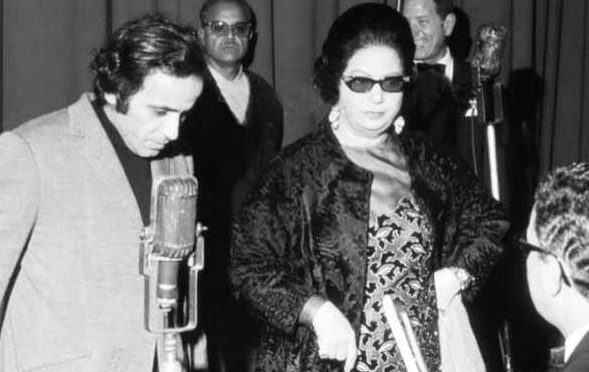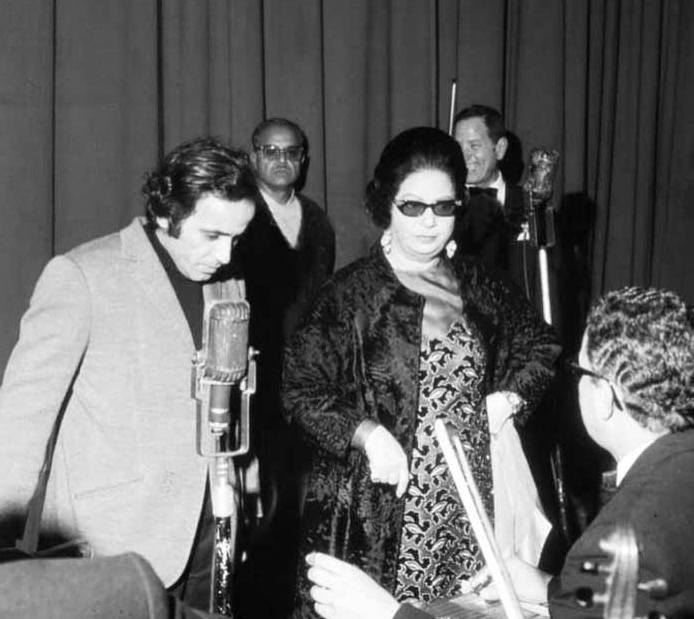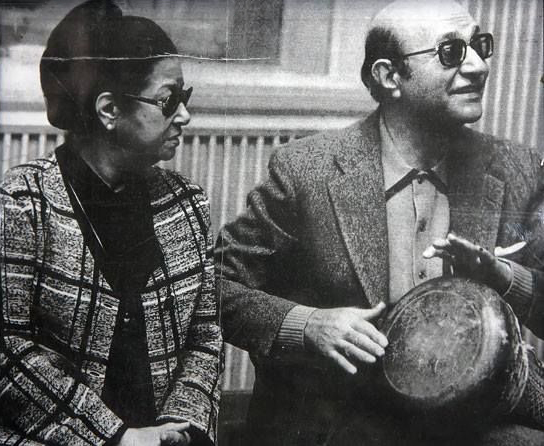
Souma’s double album release revives Egyptian cult classics from Om Kalsoum
From the two towering pillars of the Arab World’s Tarab, Om Kalsoum & Mohamed Abdel Wahab, comes another cult classic of Wa Maret El Ayam
Umm Kulthum needs no introduction – along with the call to prayer, her magnanimous voice has reliably been one of the few daily constants across the Arab worlds’ sonic landscapes over the past century. From Aleppo to Alexandria, Baghdad to Beirut and Cairo to Casablanca, in 1934 and for the following forty years her live broadcasts on the first Thursday of each month would see streets and workplaces deserted as millions rushed home to tune in; Umm Kulthum triumphantly became the beating pulse of a new post-colonial Arab world order, and the embodiment of Egypt’s cultural renaissance. Perhaps most remarkably, she spearheaded the remoulding of gender norms across the Middle East by setting an example of what dignified, perseverant and unabashedly Arab women can go onto achieve – she was incredibly business-savvy, actively engaged in public circles at the highest levels, and firmly devoted to her career over traditional family life. Her formidable presence extended to her fervent voice – being a contralto and in all her glory, she would stand at least three feet away from a microphone when singing. Her exalted tone and mastery of Maqaamat (Arabic melodic scales) allowed her to sing intricately layered Arabic poetry while evoking in listeners, be they peasants or aristocrats, a trance-like state of Tarab or rapturous enchantment where time and space dissolved into the music. Egyptian novelist and Nobel laureate Naguib Mahfouz aptly compares her to a “preacher who becomes inspired by his congregation…..when he sees what reaches them he gives them more of it, he works it, he refines it, he embellishes it” – perhaps this is why she was said to have never sung a line the same way twice! Though many have attempted over the years, Umm Kulthum’s voice has proven to be simply inimitable.
Her long-awaited and blessed union with the godfather of contemporary Arabic music, Mohamed Abdel Wahab, finally came in circa 1965 under the auspices and repeated urging of the widely adored Egyptian President Gamal Abdel-Nasser.
Egyptian King Baligh Hamdy and “The Lady” Om Kalsoum meet for the final time in her parting ode, Hakam Aleena El Hawa
There is no Western counterpart to Umm Kulthum, that much is clear. She was once described as having had “the virtuosity of Ella Fitzgerald, the public persona of Eleanor Roosevelt, and the audience of Elvis”, and the likes of Bob Dylan and Robert Plant of Led Zeppelin count her among their ultimate sources of inspiration. Charles De Gaulle adorned her with the title of “the Lady” and to the Arab world, she was simply known as the “Voice of Egypt” or “Egypt’s Fourth Pyramid”. What Umm Kulthum achieved over the course of her sixty-year trailblazing career is nothing short of legendary; renowned for her ability to gracefully rise above the grandeur of instrumentation, she would reincarnate melody by deftly colouring her tone depending on each piece’s deep emotional context. Adding to her gravitas, she had perfected the diction and pronunciation of Classical Arabic, having committed the entire Quran to memory aged 12 – a feat that remains to this day unmatched by any other prominent artist. Her five-hour long performances would rapture her listeners into feeling wistful melancholy, warming jubilation and fierce trans-nationalistic pride, all at once.
Throughout Umm Kulthum’s illustrious years in the limelight, there were persistent rumours of a romantic relationship between her and prolific Egyptian composer, Baligh Hamdy. The true depths of their relationship remain a mystery, however, their collaboration as artists brought the world some of its most prized & collectible pieces in the Arabic musical canon.

Hamdy was a powerhouse who epitomised the parlance between avant-garde oriental and occidental arrangements with vigour and tenacity, and Umm Kulthum herself was deeply compelled by his compositions. After delivering her the sensation that is Alf Leila we Leila and other timeless classics, Baligh Hamdy for the final time composes Hakam Aleena El Hawa in Umm Kulthum’s parting ode before her death. In a hauntingly beautiful ballad, she speaks of the overwhelming nature of love and sincere affection, over a delicately formulated Maqam Nahawand on the Arabic melodic scale. With an intro featuring the rhythmic fireworks of Hany Mehanna, Egyptian King of the Farfisa organ and pioneer of the oriental synth, Souma Records proudly present a remastering of the original studio version for The Voice of Egypt to live on. High-quality pressing housed in delicately handmade natural paper jackets.
Musing, beckoning and triumphant as always…
Muhammad Al-Najjar, Cairo, April 2023
Wa Maret El Ayam, and Hakam Aleena El Hawa are out now on Souma Records

